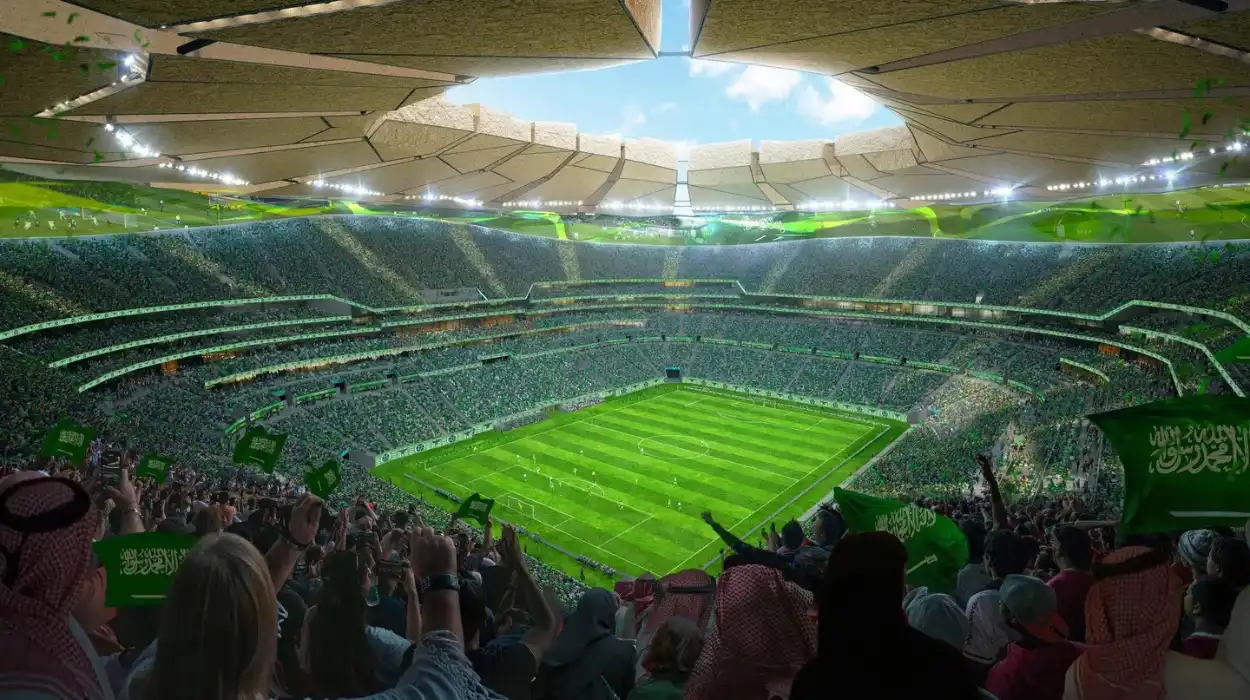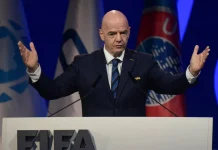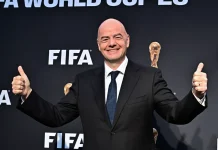The latest headlines suggesting that Saudi Arabia was awarded the right to host the FIFA World Cup in 2034 have caused stir and concern. The general concerns include the government getting a hold during the event. The political structure of the country and its inclination to human rights abuses coupled with the general lack of openness of the country is said to be extremely dangerous to host such an international event as per critics of the country. The following article highlights some factors that might make Saudi Arabia unsuitable for hosting in terms of risk from the government.
Nature of Saudi Governance
It is well understood that today Saudi Arabia is an absolute monarchy where sovereign power resides in the monarchy, throughout all types of power: political, economic, and social. However, during recent years some reforms have been made under Vision 2030; nevertheless, they have not provoked any major political democratization.
Concerning the critics of this power in the hands of a few people, the griping of government in their activities is manifested particularly at such times as the FIFA World Cup held across the world. No law-bound written constitution exists for this country. Instead, the Basic Law of Saudi Arabia established in 1992 outlined the duties of its institutes of government but wasn’t as specific as having formal constitutions.
Human Rights and Oppression Actions and Crackdowns
Because of the poor record on human rights in Saudi Arabia, one questions the nation’s right to host international events. This country has been accused of the way it handles its journalists, activists, and political antagonists. For example, the 2018 murder of Jamal Khashoggi had raised a message to the whole world where many people understand the risks of speaking against the government.
With the World Cup hosting, the Saudi government will use this as an opportunity to escalate monitoring, filtering, and detention in the name of security and order. In 2022, Saudi Arabia executed 196 people, with the most notable incident being on March 12, where 81 men were executed in one day, the largest mass execution in decades.
Suppression of Free Speech
The freedom of speech and press is heavily restricted in Saudi Arabia, certainly after the Sep 11 2001 terror attack in the United States of America. Media and freedom of speech are somewhat restrained, meaning that citizens and even tourists are restricted from giving their opinions about the government.
The government can even barbecue the foreign journalists from covering the event. This will then give them control over what gets out to the international world as well as what does not. Further, a user of social media can be punished severely if he possesses content unbeneficial for the government. Hooliganism is an element that undermines FIFA’s values of Free transfer, football tourism, influential cultures, etc.
Policing and Surveillance
The FIFA World Cup entails millions of fans from all over the world and is a logistical and security problem for any nation to host. Those fears within Saudi Arabia regarding how the government will continue to sustain its grip are well grounded – through surveillance and effective policing. There exists a Consultative Assembly: Majlis Al-Shura consisting of 150 men appointed by the king upon four-year terms.
It has uploaded much on surveillance systems that possess facial recognition technology as well as AI technology in monitoring. This is often done for security reasons but this can always be abused in order to tackle any form of rebellion by the public in as much as the event is being celebrated. The fans, journalists, and even players will be under constant watch and there will be a dent of mistrust between fans and players.
Lack of Transparency
This aspect of transparency is very vital when it comes to the running and management of an international event such as the World Cup. Nonetheless, the centralized and non-transparent decision-making and lack of responsibility from the side of Saudi Arabia can be considered a problem. This also extends to the issues of corrupt and inefficient management: there is always the rod that is feared to be overused in this case by the government.
Misconceptions of Human Rights Publication Improper Implementation of Workers’ Standards
This has large migrant laboring practices such as low wages and poor working conditions without legal remediating in Saudi Arabia. All these malpractices will be scaled up in construction projects that have been earmarked for the host of the World Cup.
As it is seen the Saudi authorities are giving out positive signals of change but there is a real chance that it will not be done. For this reason, anyone who lays claim to wanting to demonstrate or seek better conditions, thinking in terms of creating order, will be beaten with an iron rod.
Contrary to FIFA’s values
FIFA’s objectives include the sport of football be enjoyed fairly and by all, with respect to human dignity. History associated with government interference and restricted laws is the stark opposite of the principle of Saudi Arabia.
While doing this, it will erode FIFA’s values and offend its fans and players and every other stakeholder who expects to find in FIFA, a responsible organization that respects its undertakings. They will cause a long-term devastating impression on the reputation and credibility of the event.
Conclusion
Indeed, even if Saudi Arabian vision is to become the host country of FIFA World Cup 2034, this is still too ambitious seeking to be more important in the world. Nonetheless, there are plenty of risks to government overreach related to the said event: concerns of human rights abuses, privacy intrusion, limitation on the media freedom and freedom of the people, and discriminative matters. That is why FIFA has to answer the question of whether it can remain faithful to the principles and values stated and launch the tournament in Saudi Arabia.













